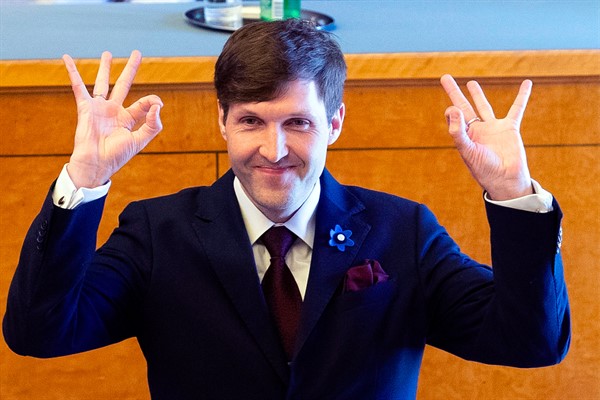On Jan. 13, the government of Estonia fell, after then-Prime Minister Juri Ratas resigned over allegations of corruption and influence-peddling that implicated his Centre Party. The party did not remain out of government for long, however. A few days later, it joined a “grand coalition” government dominated by moderates and headed by Estonia’s first woman prime minister, Kaja Kallas of the center-right Reform Party.
The change in government was perhaps more significant for what it means for the far-right Conservative People’s Party of Estonia, which prior to entering Ratas’ government had been treated as a pariah in Estonian politics. Known by its acronym EKRE, the party had been in the ruling coalition for less than two years, but this proved long enough to cause widespread shock and horror. The scandal that brought down Ratas also implicated an aide to Martin Helme, who served as Ratas’ finance minister and also heads EKRE. The party was excluded from the new coalition and once again finds itself on the outside looking in.
The Estonian political class and media, and many ordinary Estonians, have now breathed a sigh of relief following a period in which EKRE, with its leaders’ outrageous statements, had become a source of embarrassment. Fortunately for Kallas, Estonia’s reputation as a progressive, tech-savvy success story has not been permanently tarnished, and its EU and NATO commitments are not in question.

